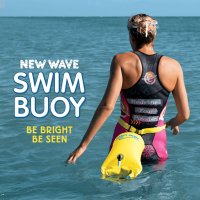Getting your nutrition right is key for athletic success. The right meal and snack choices every day will significantly improve your performance in training and competition. You will be able to train harder for longer, recover quicker between swim practices and, most importantly, race faster at swim meets. Not only that, but you will stay healthier throughout the season, which means fewer training days and competitions missed through sickness.
Carbohydrates are the essential fuel for high performance athletes
As an athlete, carbohydrate is your body’s preferred fuel, especially for high intensity swimming. Eating carbohydrate foods at regular intervals throughout the day will top up your muscle fuel and allow you to push yourself harder in training. All of your meals and snacks should be based on carbohydrate foods. However, not all carbohydrate foods are created equal. The quality of your carbs counts! Good quality carbohydrates will energize you, promote good health and help you perform at your best. Good carbohydrate choices are whole grain breads, whole grain breakfast cereals, oats, pasta, brown rice, quinoa, baked potatoes, sweet potatoes, sweetcorn, chickpeas, beans, lentils and fresh fruits.
Protein is essential for muscle repair and growth.
Your body also needs a regular intake of protein for ongoing muscle repair and growth. It is not necessary to consume high amounts of protein as any excess protein will not turn into more muscle, but will be burned as fuel or stored as fat. Each of your meals should include a moderate serving of lean protein, the size and thickness of the palm of your hand or one-quarter of your plate. For snacks, include some protein with your carbohydrate food. Convenient, easy protein sources for snacks are milk, cheese, yogurt, boiled eggs and nuts.
Pre-Training Nutrition
Your pre-training meal or snack depends on how much time you have before your training begins, what foods you tolerate and your personal preference. Your meal or snack should always contain mainly carbohydrate to top up your muscle fuel which will allow you to push yourself harder and get the most out of your training session.
The more time you have before training, the more protein you can include in your snack. Some good pre-training meals and snacks include:
- 2 hours before training: Toast and boiled eggs, or a sandwich with ham or chicken, or a baked potato with cheese and beans, or a rice bowl with lean meat and veggies.
- 1 hour before training: whole-grain cereal and milk, or granola and low-fat yogurt, or toast with a small amount of peanut butter and jelly or a homemade smoothie made with fruit and yogurt.
- 30 mins before practice as you don’t have much time to digest your food, choose a light carbohydrate snack such as a banana, or a granola bar, or a bagel, or raisin bread.
Always include a drink with your pre-training snack so that you start practice hydrated.
A good pre-training snack will not only increase your energy levels but will increase your concentration and desire to work hard, which will make your coach very happy!
Post Training Nutrition
Eating as soon as possible after training (especially during the first 30 minutes) is the key to starting your body’s recovery process. Missing this prime recovery window will reduce your ability to optimally refuel and repair your muscles. This is especially important if you have two training sessions in one day.
Aim to eat a quick snack within 30-minutes of finishing training. The snack should contain mostly carbohydrate (40-80g) with some protein (10-20g). The snack should be low in fat to speed up digestion which refuels your muscles quickly. You should also include some fluid with your snack. Low-fat flavored milks (like chocolate milk) and smoothies made with low-fat milk or yogurt are great, convenient options. They check all the boxes for your carbohydrate, protein and fluid needs! Some other good post training snack options include:
- Granola Bar and cup of low fat Greek yogurt
- Peanut butter and jelly sandwich
- Honey sandwich and 2 boiled eggs.
- Low fat cheese and crackers plus fruit
- Sports Recovery bar (check the amounts of carbohydrate and protein on the wrapper)
Remember, eating a pre and post training snack will help you to train harder and recover quicker so you can train hard again the next day. Being able to consistently train hard will mean you will gain more benefit from your training and swim faster at meets!

